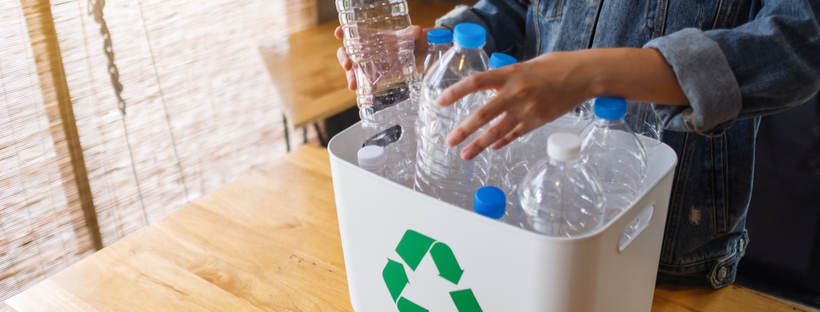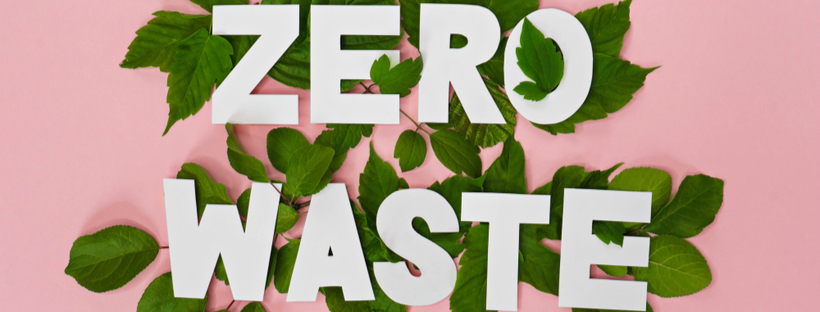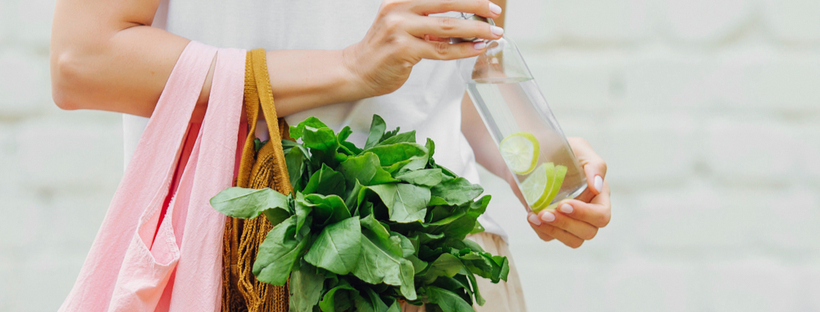Over the last decade, there has been conversation pertaining to the state of the Earth and the environmental impact we as humans make in our daily lives. Regardless of the politics associated with this topic, it’s safe to say that taking steps to better care for our planet will ultimately benefit us and can even save us a few dollars along the way.
Get Wasted
The term “zero waste” is thrown around a lot in sustainability circles, and while it sounds like an intimidating endeavor, it’s meant as a goal to aspire to rather than a strict code of conduct. There is no such thing as perfection, and keeping these lifestyle changes realistic to your needs will motivate you to stick with them. Sometimes, it’s as simple as swapping out a couple of your everyday items.
Don’t Be Trashy

To reduce the amount of waste in your life, you will first need to see where it’s coming from. For the most accurate representation of what you’re throwing away, it’s recommended you do a “trash audit.”
Essentially, you will need to look through your trash or recycling bin and see which purchases are causing the most waste. Focus on items that could be swapped out for something reusable or plastic-free.
Foody Two Shoes
Most of our waste comes from food consumption, as many items at the grocery store come in plastic containers. Nowadays, there are options that reduce the number of single-use plastics we inadvertently purchase.
Opt for fresh produce and herbs instead of a packaged salad, or bring glass jars from home to collect any nuts or seeds you may need.
Swap it Out
Speaking of the grocery store, have you noticed how many plastic bags are used every time you make a shopping run? For your next trip to the market, try bringing a couple of reusable totes, eliminating the need for single-use grocery bags.
This is just one of the many ways you can easily incorporate zero-waste habits into your life. Some of the most beneficial changes come from the simplest swaps.
Paper or Plastic

Replacing plastic water bottles with a stainless steel flask is a great way to keep your water cold and stay hydrated without creating any unnecessary waste. This also saves you money down the line by preventing the need to continuously purchase water in bulk.
During gift-giving seasons or birthdays, a lot of trash is created through gift wrap and gift toppers. Great alternatives include using organic kraft paper, organic twine, and flowers or plants from your backyard as a beautiful topper.
Rock Out with Alternatives
Over the last few years, many brands have emerged adopting more sustainable practices, such as reusable or biodegradable packaging and refillable products. Fortunately, this makes our lives easier when deciding which brands to support when purchasing new items. This is especially common with toiletry items, such as feminine hygiene products, skincare, and body soap.
Take inventory of the items in your bathroom and do a bit of research to see if there are any environmentally friendly alternatives to the single-use or plastic items you use every day. There are also many brands that send a portion of their profits to charitable organizations that support environmental wellness. It helps knowing the money you spend play a part in the improvement of the planet.
Feeling Thrifty
Thrift shopping is more than just a pastime for millennial hipsters. Many people visit secondhand shops as a way to save money on household items or to upcycle old furniture and clothing. In addition to these benefits, purchasing from a thrift store or flea market does wonders for sustainability. Everything we buy has a resource footprint, and buying a product creates a demand for more of that product to be made.
The fur industry, for example, is reducing the production of real fur, replacing it with faux fur products that use synthetic fibers. If you like the style but want to reduce your footprint, opt for used fur (faux or real) instead of letting it go to waste in a landfill. Buying things second-hand fulfills a consumer’s needs with a low cost of resources.
Buy Less, Save More

Everyone is guilty of impulse purchases and overspending on miscellaneous products that will never be used again. When it comes to working toward a zero-waste lifestyle, sometimes it’s less about the packaging and more about the consumerism. This isn’t to say you should stop buying things you like altogether, but be mindful of the purchases you do make. Ask yourself if the item is something you plan on utilizing for a long time, and if it will add to the waste in your life or help reduce it.
Along this journey of sustainability, it’s common for people to throw away all their plastic products and replace them with environmentally friendly options, but that would do more harm than good if you have no immediate need for said options. Simply use your product to its full extent and opt for reusable or plastic-free alternatives when the need arises. When you want to live more sustainably, tackling your waste footprint is the most tangible thing you can do, and reducing the amount of unnecessary stuff you buy is a great place to start.





No Comments